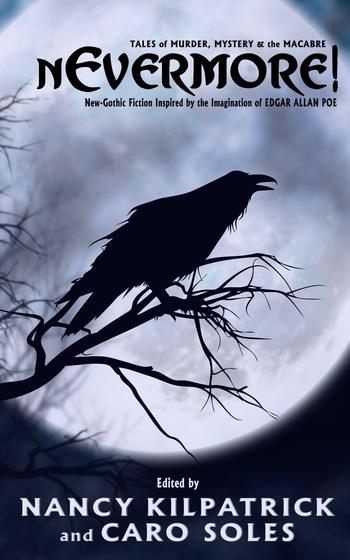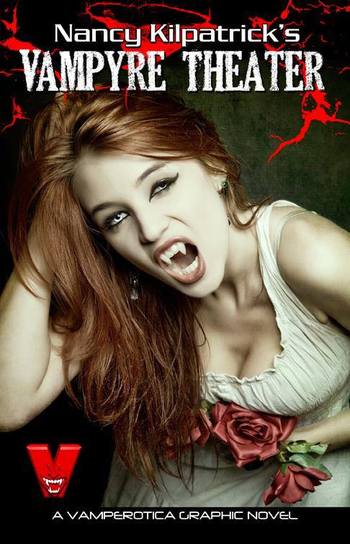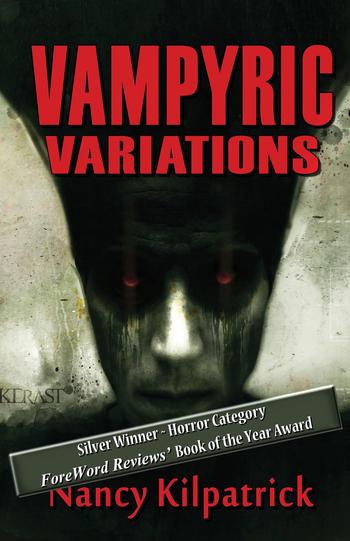Things Your Writing Teacher Never Told You: Pro-Tip From Nancy Kilpatrick
 Our Pro-Tip author this week is the multiple award-winning writer and editor Nancy Kilpatrick. She writes dark fantasy, horror, mysteries, and erotica. Her publishing credits include 18 novels, over 220 short stories, 7 collections, and 1 non-fiction book. She has edited 15 anthologies.
Our Pro-Tip author this week is the multiple award-winning writer and editor Nancy Kilpatrick. She writes dark fantasy, horror, mysteries, and erotica. Her publishing credits include 18 novels, over 220 short stories, 7 collections, and 1 non-fiction book. She has edited 15 anthologies.
I Can’t Seem to Get the Ending Right. What Should I Keep in Mind?
A short story is a slice of time in the life of the protagonist. What happens has to have a beginning, middle and end, even though most of the time the protagonist had a life before the events of the story and will (hopefully) have a life after. A short story should read from the beginning as if the reader does not know where the story will end–that’s suspense. But once the story is finished, the reader should feel that Yes!, this is how it had to end. That makes a satisfying read.
Your protagonist has a problem, aka ‘conflict.’ If he/she doesn’t, you don’t have a story. That conflict is an either/or conflict. The protagonist is torn between two basics. Base line example: live or die. The reader reading the story knows this because they see the conflict and the obvious solutions to that conflict. If the story ends with either of these obvious endings: the protagonist lives/the protagonist dies — the reader will feel let down. The writer’s job is to find either an alternative ending or a variation on one of the two obvious endings so that the story has an intriguing and unanticipated conclusion.
Brainstorm with your own brain. You know the conflict, the either/or problem, and the two obvious endings. Type out in point form as many alternative endings as you can think of in 10 minutes. Don’t be afraid to be absurd. And don’t censor anything. Just write it all down. By giving your right brain free rein to play with possibilities, it’s likely you will stumble upon an ending that you hadn’t envisioned.
Nancy Kilpatrick’s most recent anthology is nEvermore! Tales of Murder, Mystery & the Macabre, co-edited with Caro Soles (which Black Gate covered here). Her graphic novel Nancy Kilpatrick’s Vampyre Theater is out soon from PreForce Publishing.
Her work has been translated into and published in 6 languages.
Recent short fiction can be found in: Innsmouth Nightmares; Blood Sisters:Vampire Stories by Women; The Madness of Cthulhu 2; Kolchak: The Night Stalker Passages of the Macabre, and in the upcoming Let Us In; Morbid Metamorphosis:Terrifying Tales of Transformation; Black Wings 5; Dreams From the Witch House; Gothic Lovecraft; and Nightmare’s Realm.
Join her on:
Facebook: nancy.kilpatrick.31
Twitter: nancykwriter
Website (in need of updating): www.nancykilpatrick.com
If you’ve enjoyed this article, you might check out some of the articles in the Pro-Tip Series:
Laura Anne Gilman: How to Solve Writer’s Block
Lawrence Watt-Evans: I Wish I’d Known This When I Started Writing
Karen Taylor: To Outline or Not to Outline?
Paul Dale Anderson 1: Ideas & Improving My Writing
Paul Dale Anderson 2: Beginnings, Endings, Self-editing and Other Craft Problems
Cat Rambo: Finding the Right Starting Point
Alyssa Wong: When is a Piece Ready to Send Out?
Martin Mundt: To Outline or Not to Outline?
Theodora Goss: Writing in More Than One Medium or Genre
Elizabeth Massie: How to Get Unstuck and Solve Writer’s Block
Gemma Files: Plot vs. Character
Season’s Greetings: Some Recommendations To Warm Your Cold Cockles
Craig Shaw Gardner: Critique Groups and First Readers
Lucienne Diver: Plot vs. Character
Carlos Hernandez: Structure, Point of View & Discovery
Also, check out the first of what will be an occasional feature: Quick Takes, where several authors weigh in on the same question.
Escaping the Darkness: What to Do When Your Imaginary World Gives You Real Nightmares
If you’ve got a question you’d like me to pose to the pros, put it in the comments section.
Tina L. Jens has been teaching varying combinations of Exploring Fantasy Genre Writing, Fantasy Writing Workshop, and Advanced Fantasy Writing Workshop at Columbia College-Chicago since 2007. The first of her 75 or so published fantasy and horror short stories was released in 1994. She has had dozens of newspaper articles published, a few poems, a comic, and had a short comedic play produced in Alabama and another chosen for a table reading by Dandelion Theatre in Chicago. Her novel, The Blues Ain’t Nothin’: Tales of the Lonesome Blues Pub, won Best Novel from the National Federation of Press Women, and was a final nominee for Best First Novel for the Bram Stoker and International Horror Guild awards.
She was the senior producer of a weekly fiction reading series, Twilight Tales, for 15 years, and was the editor/publisher of the Twilight Tales small press, overseeing 26 anthologies and collections. She co-chaired a World Fantasy Convention, a World Horror Convention, and served for two years as the Chairman of the Board for the Horror Writers Assoc. Along with teaching, writing, and blogging, she also supervises a revolving crew of interns who help her run the monthly, multi-genre, reading series Gumbo Fiction Salon in Chicago. You can find more of her musings on writing, social justice, politics, and feminism on Facebook @ Tina Jens. Be sure to drop her a PM and tell her you saw her Black Gate blog.


